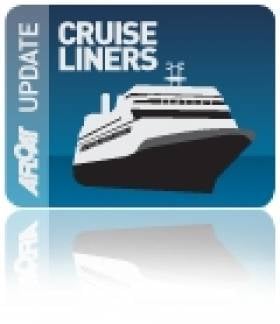Displaying items by tag: Caly Ali
Bikini Registered Motoryacht Follows Cruiseship Out of Dublin
As for Cary Ali, she is a 87ft long was built in 2007 by Nordhavn to a design of Jeff Leishman. From her stern flew the flag of the Marshal Islands in the Pacific Ocean. Inside the four-decked vessel there is the main salon, a dining room, galley and three guest staterooms, and a master cabin (click HERE). In total eight people can be accommodated. In addition she has a jacuzzi, fly-bridge and is equipped with a tender and has crew of four.
She has a speed of 24-knots and is equipped with 50hp bow and stern thrusters. To read more about the luxurious motoryacht including facts and figures click HERE.
The Cary Ali had berthed at the 100-berth marina of the Poolbeg Yacht & Boat Club which caters lesiure craft up to 20 metres and is centrally located on the south side of Dublin Port. The facility has accommodated larger motoryachts over the years. Though even larger motoryachts such as Battered Bull, a Feadship 52m has berthed further upriver at Dublin City Moorings.
- motorboats
- Carlingford Lough
- Dublin Port
- Cruise Liners
- Ports and Shipping
- Lough foyle
- Poolbeg Marina
- motor yacht
- Marshall Islands
- Dublin City Moorings
- Cruise ships
- Greencastle Co.Donegal
- Greencastle Maritime Museum
- Hebridean Princess
- Caly Ali
- MY Caly Ali
- Charter motoryachts
- Motor boat news
- Lough Foyle Ferry Company
























































